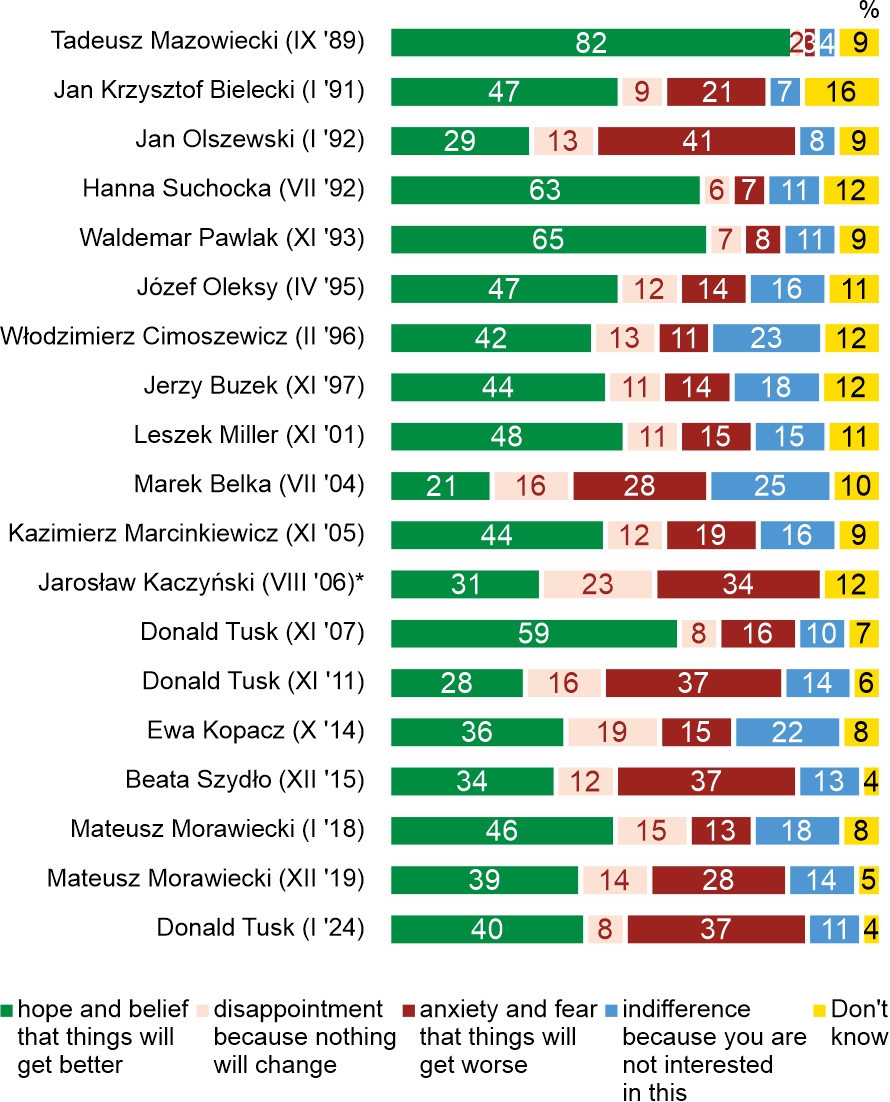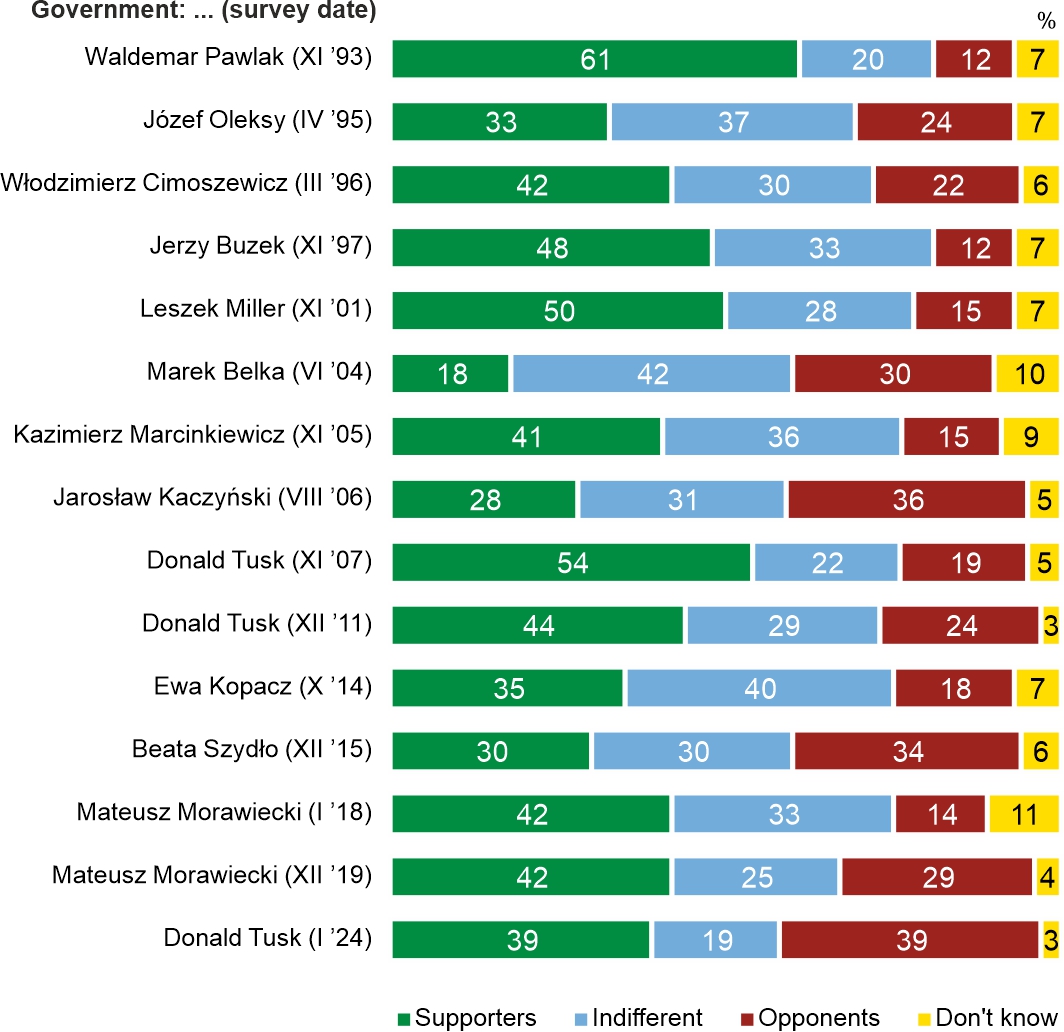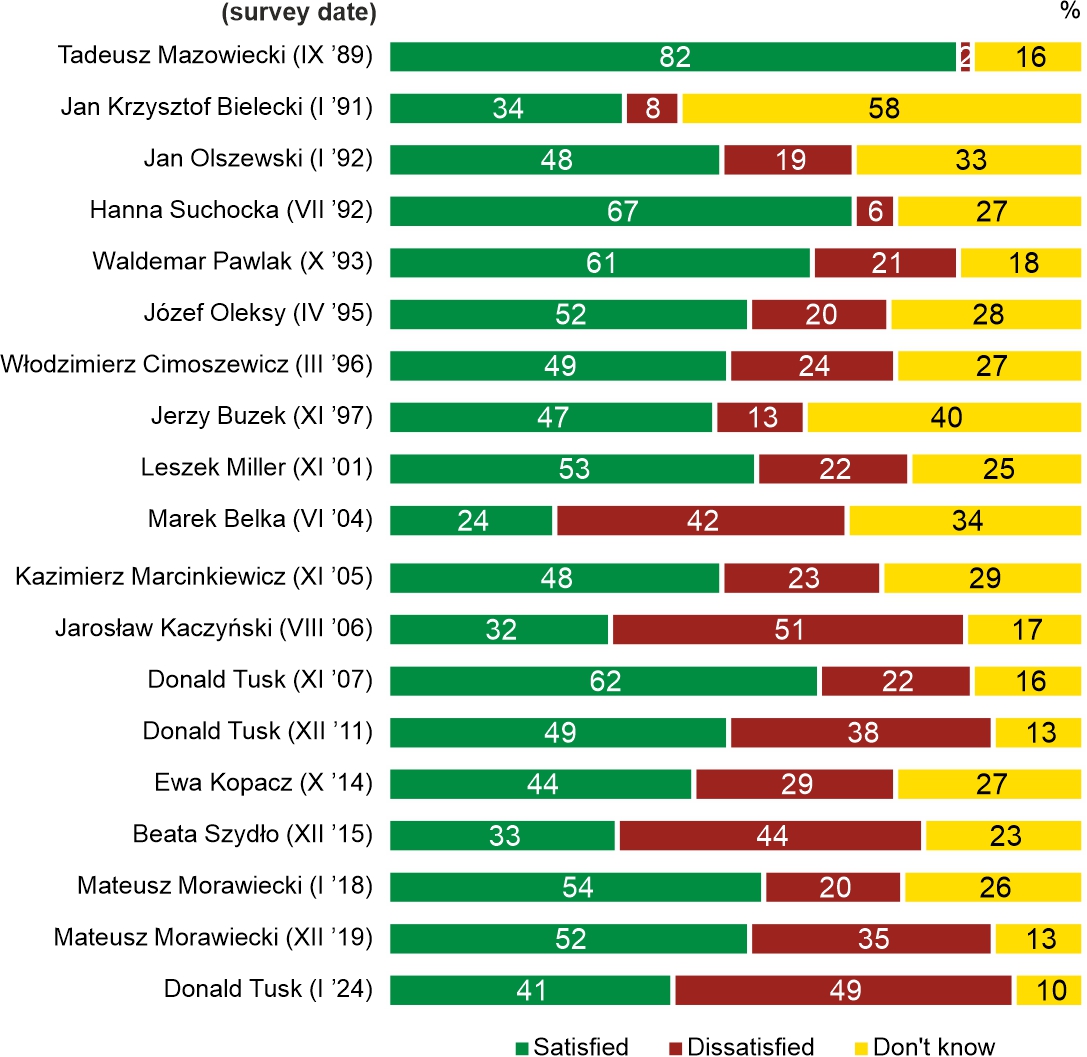The First Ratings of Donald Tusk’s Cabinet
Author: Beata Roguska
|
2024-01-31
The transfer of power to the new coalition government took an exceptionally long time. Donald Tusk's cabinet was sworn in almost two months after the October elections, on December 13 2023, after an unsuccessful attempt by Mateusz Morawiecki's third government to obtain a vote of confidence in the Sejm. The circumstances in which the current ruling coalition came to power and the quick and controversial actions of the government (e.g. regarding changes in the public media) could have meant that the government had practically no “honeymoon period”, i.e. a time when the public opinion gives the government a lot of trust at the start and refrains from expressing criticism.
Public reactions to the formation of Donald Tusk's government are varied. Two-fifths of respondents (40%) express hope for an improvement in the situation in the country following the appointment of Donald Tusk's government. However, slightly fewer people (37%) are afraid that it will be worse than before. Only 8% believe that nothing will change, and 11% declare indifference towards the government.
Compared to the previous cabinets, Donald Tusk's government arouses particularly strong emotions and at the same time contradictory reactions: a total of 77% of respondents expect good or bad changes.
What is your reaction to formation of the government of Prime Minister ...

Hopes related to the government are most often expressed by the best-educated and well-off people, residents of large cities. In socio-professional groups, such attitude is common among business owners, managers and specialists. Concerns about Donald Tusk's government in power are most often expressed by people with less education and less well-off, rural residents, including farmers, people aged 55+, pensioners, the disabled, homemakers and others not in employment.
The intensification of the political conflict and controversies accompanying the takeover of power in the country by the new coalition are reflected in the declared attitude towards the current cabinet. The government's supporters include 39% of all respondents, and the same number describe themselves as its opponents. Only less than one-fifth (19%) are indifferent towards the government. Taking into account the percentage of people avoiding declarations for or against the current government, it appears that no cabinet has so strongly engaged the emotions of Poles for over thirty years, and none of them had so many opponents at the beginning of its existence. So far, the government of Beata Szydło was the most controversial at the beginning of its activity (the percentage of its supporters was similar to the percentage of its opponents), but far more people kept their distance from the new cabinet or had no clear attitude towards it.
Attitude towards governments at the beginning of their activity

Over two-fifths (41%) of Poles are satisfied that Donald Tusk is the head of the government. However, nearly half (49%) express disapproval of the Prime Minister. Only one- tenth refrains from expressing their opinion. Donald Tusk is currently in a small group of heads of government, alongside Beata Szydło, Jarosław Kaczyński, and previously Marek Belka, who met with disapproval rather than acceptance on taking office. It was different in the autumn of 2007 and 2011, when Donald Tusk, upon becoming Prime Minister, elicited positive reactions.
Are you satisfied with the Prime Minister?

More information about this topic can be found in CBOS report in Polish: “The First Ratings of Donald Tusk's Cabinet", January 2024. Fieldwork dates for the sample: January 2024, N=1015, mixed-mode interviews. The random sample is representative for adult population of Poland.




